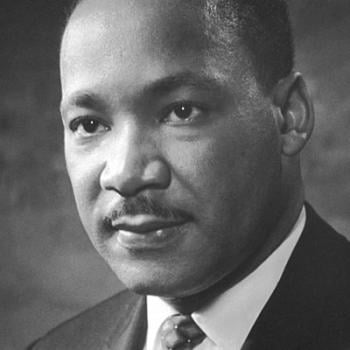In following the stimulating discussions over at Pontifications, I’ve become increasingly convinced that there are two rather different reasons why people convert to Catholicism–unity and authority. By this I don’t mean that the same person can’t be concerned with both–probably most converts are. Indeed, it would be hard to follow the one impulse into Catholicism without also finding oneself in the wake of the other. But I think on the whole one or the other is likely to be more important, and if you listen to people talk about their reasons for converting (or for considering the possibility) you can usually figure out which.
I’m also not denying that there are many other reasons for considering Catholicism, of course. But in the absence of one of these two concerns (or of personal reasons for choosing Catholicism), any other reason is as likely as not to lead the seeker elsewhere. For instance, someone primarily concerned to recover sacramental piety and the beauty of the liturgy is likely to end up Anglican or Orthodox. Someone concerned for a coherent, logical theology with well-defined boundaries between truth and error may well become Reformed. Someone whose deepest desire is for an ancient, unchanging faith that is clearly reflected in the writings of the Fathers is likely to become Orthodox. And so on, and so forth.
The desire for unity and authority, on the other hand, can be fully and legitimately satisfied (for the Christian) nowhere else but in the Roman communion. As a Protestant (unless one adopts a purely invisible view of the Church), one is continually yearning for a unity that is not fully expressed in one’s own denomination. That just comes with the territory. And even the Orthodox, while they try to avoid the fact, have stubborn bits of evidence in their own beloved Tradition that the See of Rome has a unique role in the preservation of unity. That doesn’t mean that the Orthodox position is incoherent–a unique role does not have to mean a necessary role. It may be that Rome has in fact fallen into heresy, and can only fulfill its historic role through repentance and reconciliation with Orthodoxy. But meanwhile there is a vacant place in the choir–and it’s the place of the conductor. The choir, being Orthodox and knowing all the chants anyway, can probably get on OK without a conductor. But it’s still not quite the same.
Similarly, I think it’s impossible to deny that the Church cannot speak with full and final authority if the voice of Rome is lacking. I am not a Catholic in part because I don’t believe that the consent of Rome is _sufficient_ to make a group of bishops an Ecumenical Council. But I am firmly convinced that it’s _necessary_. One can’t speak of “the Church” when speaking of dogmatic definitions without speaking of Rome. Any non-Roman ecclesiology is going to find its style a bit cramped when it comes to fighting heresy and laying down the boundaries of orthodoxy. It’s going to have strong temptations to slide into either a sectarian orthodoxy that makes certain local peculiarities (such as the Protestant view of sola fide) Dogmas of the Church, or a barren swamp of tolerance that cannot name any heresy except whatever the broader culture of the given time and place considers offensive.
People for whom either or both of these issues are desperately important are going to find it very difficult to resist the pull Romewards. But depending on which issue is more important to them, they will experience that pull in quite different ways.
For the authority-minded, everything tends to boil down to epistemology. How do you _know_ that you are in possession of the truth? How can you believe X and reject Y without having a theory in place that explains why one is true and the other is false? This is one of the issues that most clearly separates those drawn to Rome from those drawn to Constantinople. The Orthodox can never answer these questions in a very satisfactory way. They believe what they believe because it’s been handed down. And they believe that the Church that handed it down is the true Church because–well, because it’s the Church that has handed down the truth. Catholic online apologists jump all over this kind of thing, with great glee.
For the unity-minded, on the other hand, the primary issue is one of allegiance. How can I live out the Christian life without having unswerving allegiance to the actual Christian community in which I participate? Nothing less than the Universal Church can demand that kind of allegiance. Therefore, one can only live out the Christian life in a community with a credible claim to universality. A unity-minded person with no concern for the authority issue may well become Catholic without worrying about infallibility–but with a deep allegiance to the concrete reality of the Catholic community. Indeed, some such people become Catholic while disagreeing flatly with certain Catholic dogmas. This is much decried by conservative Catholics, but it happens.
To some extent, clearly, these two categories correspond to the labels “conservative” and “liberal.” Certainly it’s hard to imagine a liberal Catholic being “authority-minded,” but the reverse is not necessarily true. “Liberal” is of course a relative term–a primarily unity-minded convert is probably always going to look “liberal” to the authority-minded. But such a person will most likely see the need for authority and dogma, and submit to all the teachings of the Magisterium. At bottom, however, the unity-minded person is not motivated primarily by the need for settled, authoritative dogma. (In the same way, authority-minded converts are usually acutely concerned for unity–my point is simply that the issue of authority tends to come first, with the need for unity being a consequence.) A unity-minded Catholic could submit quite happily to a church that got things doctrinally wrong, occasionally. The fine points of ex cathedra vs. ordinary magisterium, vs. non-infallible statements that demand submission of will and intellect, are not going to bother such a person all that much.
Now the way I’ve put this probably tips my hand. In fact, my first interest in Catholicism was highly authority-driven. I wanted a haven of certainty, to preserve me from liberalism while rescuing me from fundamentalism. I didn’t (and don’t) trust myself to make up my own religion.
Yet the more I explored Catholicism the more problems and contradictions I found with this approach. Between the difficulty of interpreting all the Magisterial documents, the questions about what is and is not infallible, and the propensity for the Vatican to demand and conservative Catholics to give a high degree of assent even to non-infallible teaching, it all got very confusing. There came a point where it seemed to me that so many of my issues were at a high level of abstraction and had little to do with the problems I faced in actually living the Christian life. As the years passed, while my interest in Catholicism never went away, I gradually moved over from the “authority” to the “unity” side of the scale. Side of the scale, be it said, not end of the spectrum. I always have been and am concerned with both issues. But it now seems to me that the Church can live relatively well (though not perfectly) without the kind of authority offered by Rome. It’s no longer clear to me (if it ever was) that doctrinal certainty is so much more important than some of the practical issues with regard to which the Roman Communion is manifestly imperfect. If I do become Catholic some day, it will not be because I’m convinced that we _must_ have an infallible authority. It will be because I’m convinced that I cannot in good conscience give my heart to any Christian body not claiming to be the Universal Church. Infallibility would, in that case, simply be one of the things that came with the package.
Pontificator, on the other hand, seems to me to be primarily authority-driven. Not of course that he isn’t concerned for unity as well. But in recent posts he seems increasingly concerned with issues of epistemology. He’s been reading a lot of Newman and seems convinced by Newman’s view that the only real alternative to skepticism and individualism is the infallible authority of the Catholic Church.
For me, the coup de grace that fully convinced me to abandon this approach was William Abraham’s book _Canon and Criterion_. I disagree with significant parts of Abraham’s argument, largely because I think he ignores the distinction I’ve been making in this post and assumes that the only basis for being (let alone becoming) a Catholic is the concern for an authoritative epistemology. But I find his basic premise thoroughly convincing. Abraham argues that the importation of epistemology into Christian dogma (in the West) has been thoroughly disastrous. For the early Church, according to Abraham, the norms of belief and practice (making up what he calls the “canonical heritage”) were simply given. On the dogmatic level, they didn’t need to be justified. They just needed to be accepted. The reasons _why_ any given individual chose to believe the Christian faith might vary, and were not themselves part of the Faith.
If Abraham is right, then the Catholic internet apologists who chase the Orthodox round the Golden Horn asking them “how do you know a Council is ecumenical” are pursuing a red herring. Such decisions are made on an ad hoc basis. This Council is ecumenical for one reason, and that Father is a Doctor of the Church (to use a Western term) for another. The reasons are not themselves part of the Faith. To resist heresy one doesn’t need to have an authority one knows beforehand to be infallible. One simply needs (as Abraham has argued in his more recent book _The Logic of Renewal_) to have the will to exercise discipline.
This does not dispose of all concerns with authority, of course. The See of Rome _is_ clearly part of the canonical heritage (this is one of the things I don’t think Abraham recognizes adequately), even if its current claims are not. Rather, what Abraham’s argument demolishes (if we accept it) is the _epistemological_ argument for authority. If certain structures of authority are necessary, they are necessary simply because they are part of the tradition. They are not necessary on a priori philosophical grounds.
The need for unity, however, remains intact. How can we speak of the canonical heritage if we cannot claim full membership in the historic bearer of the canonical heritage? This is, for me, the great issue. I’m going to try to lay out a possible Protestant answer to this question in subsequent posts. I welcome comments (or even anathemas).











